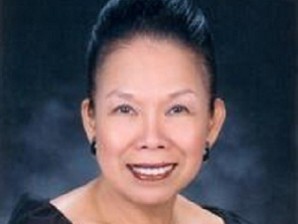CHEd lays out new GE subjects for colleges, universities with K+12 program
MANILA, Philippines—The Commission on Higher Education (CHEd) has approved the new set of mandatory general education (GE) subjects that will be taught to college students who have finished the added two years of high school under the K to 12 (Kindergarten to Grade 12) program.
The new GE curriculum will be taken up for only one year (or 18 units every semester) instead of two years as currently practiced since most of the old GE subjects will already be taken up in senior high school (Grades 11 to 12).
The shortened GE curriculum has prompted all collegiate disciplines, which take four to five years to finish, to revise the content and length of their respective curriculum before the K to 12 graduates enter college in 2018.
“Yes (the new GE curriculum) is approved already. We’re in the process of consultations. In general, the reception is quite positive,” CHEd chairperson Patricia Licuanan said in a recent interview.
She confirmed that the engineering technical panel has already decided to shorten the course from five years to four years because of the K to 12 program.
Article continues after this advertisementThe technical panels of experts formed by CHEd for every collegiate discipline will decide whether to shorten the course, or to keep the length but add more major subjects.
Article continues after this advertisement“The decision is not across the board. It will be discipline-based,” Licuanan said.
“Engineering has already said instead of five it will be taken in four (years). I personally feel there are some courses that could be taken in three years, but that’s up to the technical committees and they’re working on it now. But they have that leeway” to decide, the CHEd chairperson went on.
She said the technical panels would make their decisions by the middle of the year since “2014 is when we hope to implement a number of things, so that means by this year we have those decisions already made.”
At present, college students are required to take up (GE) subjects such as communication, math, science, history and physical education during their first two years before they can take up subjects for their respective disciplines.
Licuanan said GE teachers would have to be trained in teaching the GE subjects in the new curriculum “in a broader way.”
Sources involved in the drafting said the new GE curriculum consisted of 12 subjects, including the mandatory subject on the life and works of national hero Jose Rizal.
The eight GE subjects are Understanding the Self, Contemporary World, Purposive Communication, Art Appreciation, Ethics, Readings in Philippine History, Mathematics in the Modern World, Science and Technology (ST) and Society.
The students are allowed to choose three elective subjects.
The shortened GE curriculum and the implementation of senior high school in 2016 and 2017 have raised the scenario where colleges and GE teachers will have no one in teach during those two years.
The K to 12 law crafted by Congress calls for a two-year transition period where college teachers who teach GE subjects can teach in Grade 11 and 12.
Licuanan said they have not finalized any arrangement with higher education institutions on the fate of displaced GE teachers.
“There’s no solution yet. Obviously we accept it as a problem. But K to 12 was necessary and therefore there will be some sacrifices entailed. What we’re trying to do now is to make sure those sacrifices aren’t too big,” she said.
DepEd already approved the curriculum for Grades 11 and 12 last December.
Senior high school will be implemented nationwide in 2016. But the 30 high schools that piloted Grade 11 last year will see their senior high school students graduate in March 2014.
The subjects taken up by these students should be credited when they enter college, Licuanan said.
“My only concern is they can’t count the same courses twice,” she said.
